The 2025 Nobel Peace Prize is scheduled to be announced on Friday, October 10, at 11:00 am local time in Oslo, Norway (09:00 GMT).
The announcement comes from the Norwegian Nobel Institute on behalf of the all-Norwegian, five-member Nobel Committee, appointed by the Norwegian Parliament and responsible for selecting and presenting the laureates.
Nominations for this year’s award closed on January 31, and the selection process remains shrouded in secrecy.
A brief history of the Nobel Prize
The Nobel Prizes are named after Alfred Nobel (1833–1896), a Swedish chemist, engineer and industrialist best known for inventing dynamite, an explosive that transformed the modern world through advances in construction and mining, but which was also responsible for the deaths of tens of thousands of people in wars.
Motivated by a desire to shape his legacy, Nobel left a multimillion-dollar fortune to fund annual prizes, awarded to those who “have conferred the greatest benefit to humankind” in the preceding year.
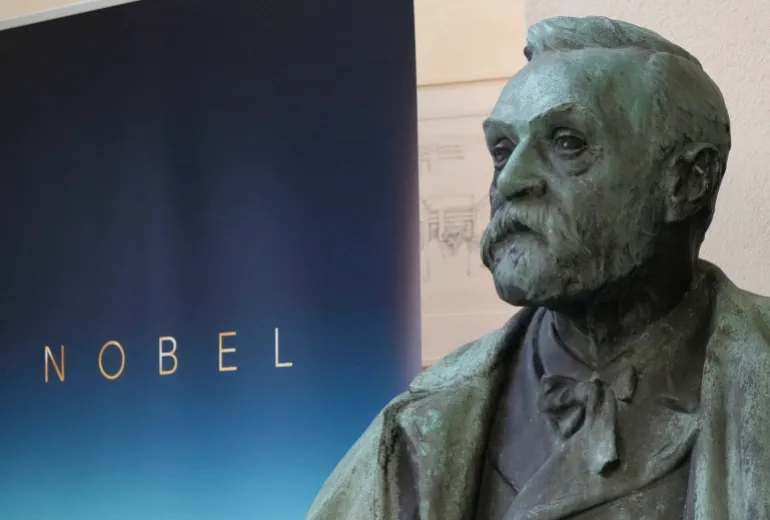
The first Nobel Prizes were awarded in 1901 for outstanding achievement in the fields of physics, chemistry, medicine, literature and peace.
In 1968, Sweden’s central bank, Sveriges Riksbank, established the Prize in Economic Sciences in Memory of Alfred Nobel, expanding the categories to six.
So far this year, four Nobel Prizes have been announced. After the Peace Prize on October 10, the final award for economics will be revealed on October 13.
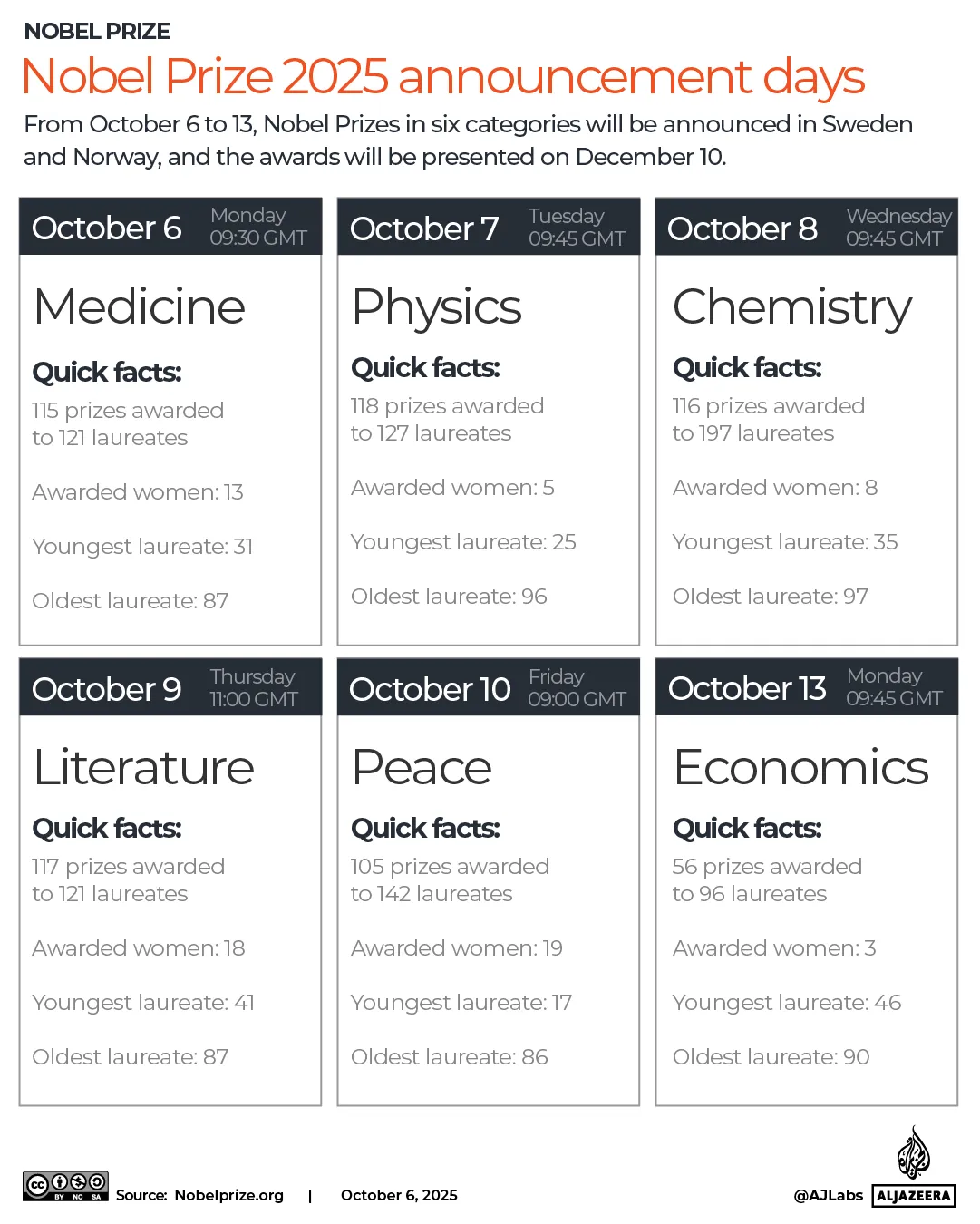
Who can be nominated for the Nobel Peace Prize?
The Nobel Peace Prize is meant to recognise individuals and organisations that have made exceptional efforts to promote peace, resolve conflicts and advance human rights.
The 2025 Nobel Peace Prize has 338 nominees, including 244 individuals and 94 organisations, up from 286 candidates in 2024.
Nominations are kept confidential, and committee members are prohibited from discussing their decisions for 50 years. Only the nominators themselves may choose to disclose their submissions.
While a person cannot nominate themselves, they may be nominated multiple times by others.
This year, United States President Donald Trump has become a focus of Nobel Peace Prize nominations. Trump, who has said, “Everyone says I should get the Nobel Peace Prize,” has received several endorsements: Israel, Cambodia, Armenia, Azerbaijan, and Pakistan, even as many have questioned his credentials.
While many well-known figures have been nominated in the past but never received the Nobel Peace Prize, the names most frequently searched in the Nobel nomination database are Adolf Hitler, Mahatma Gandhi and Joseph Stalin.
These individuals represent vastly different legacies: Hitler was nominated in 1939 as a satirical gesture, Gandhi was nominated multiple times between 1937 and 1948 but never awarded, and Stalin was nominated in 1945 and 1948 for his role in ending World War II.
Who has received the Nobel Peace Prize?
As of 2024, the Nobel Peace Prize has been awarded 105 times to 142 laureates – 111 individuals and 31 organisations.
Among the individual recipients, 92 are men and 19 are women.
The youngest laureate to date is Malala Yousafzai, who received the award at the age of 17 in 2014, while the oldest is Joseph Rotblat, honoured at 86 for his work against nuclear weapons.
The International Committee of the Red Cross holds the record for the most Peace Prizes, having been recognised three times, followed by the Office of the United Nations High Commissioner for Refugees (UNHCR), which has won twice.
Geographically, Europe accounts for the largest share of laureates at 45 percent, followed by North America (20 percent), Asia (16 percent), Africa (9 percent) and South America (3 percent).
In addition, United Nations organisations represent about 7 percent of all Nobel Peace Prize recipients.
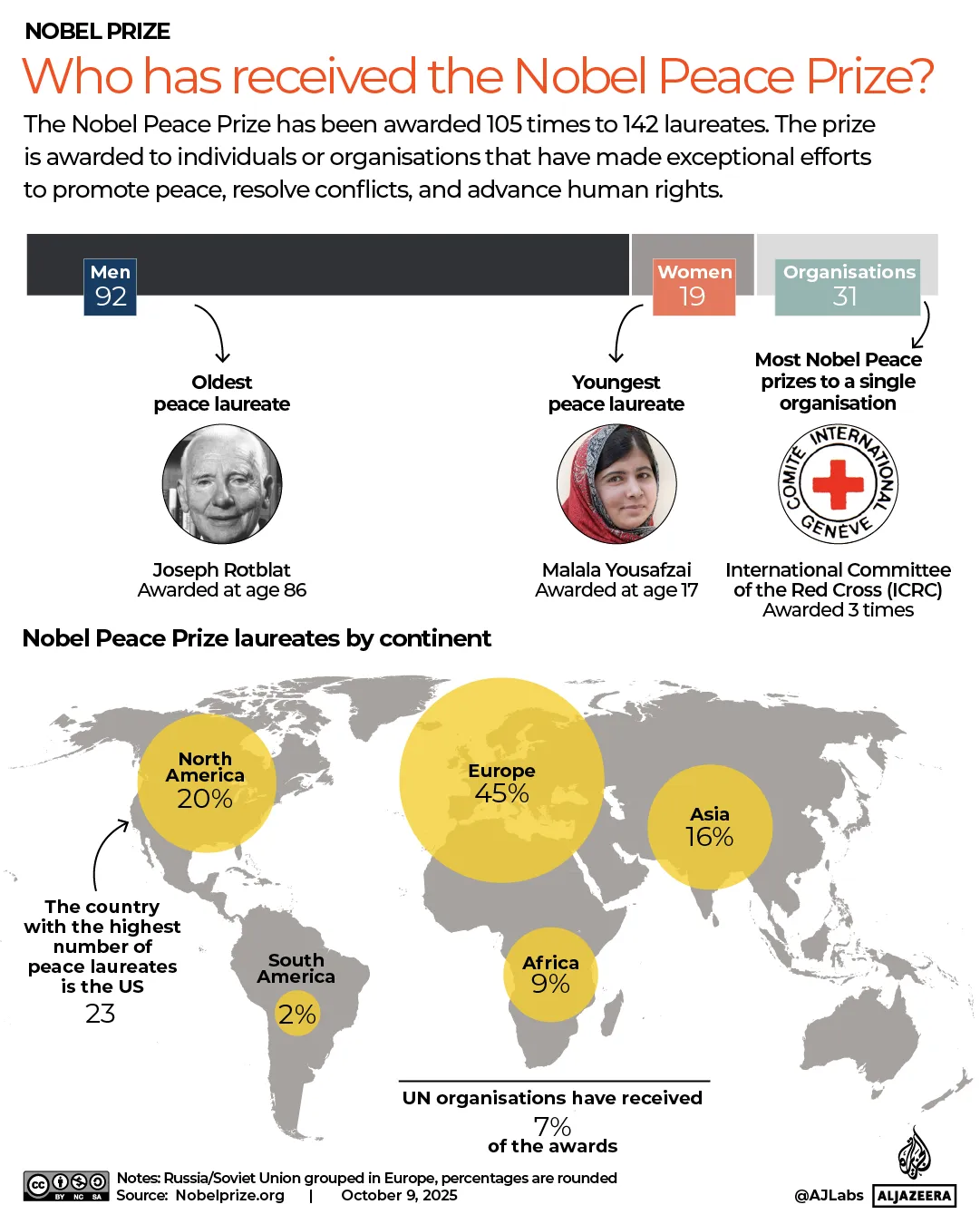
When was the Peace Prize not awarded?
The Nobel Peace Prize has not been awarded every year.
It was skipped on 19 occasions, specifically in 1914–1916, 1918, 1923, 1924, 1928, 1932, 1939–1943, 1948, 1955–1956, 1966–1967, and 1972, usually due to war or the absence of a suitable candidate.
According to the statutes of the Nobel Foundation, if none of the candidates’ work is deemed significant enough, the prize may be withheld and the prize money carried forward to the next year. If it still cannot be awarded, the amount is transferred to the Foundation’s restricted funds.
One notable instance came in 1948, the year Mahatma Gandhi was assassinated. Gandhi had been nominated several times – in 1937, 1938, 1939, 1947, and again in 1948 – for his nonviolent leadership of India’s freedom movement. In 1948, the Nobel Committee chose not to award the prize, citing “no suitable living candidate”, widely seen as an implicit tribute to him.
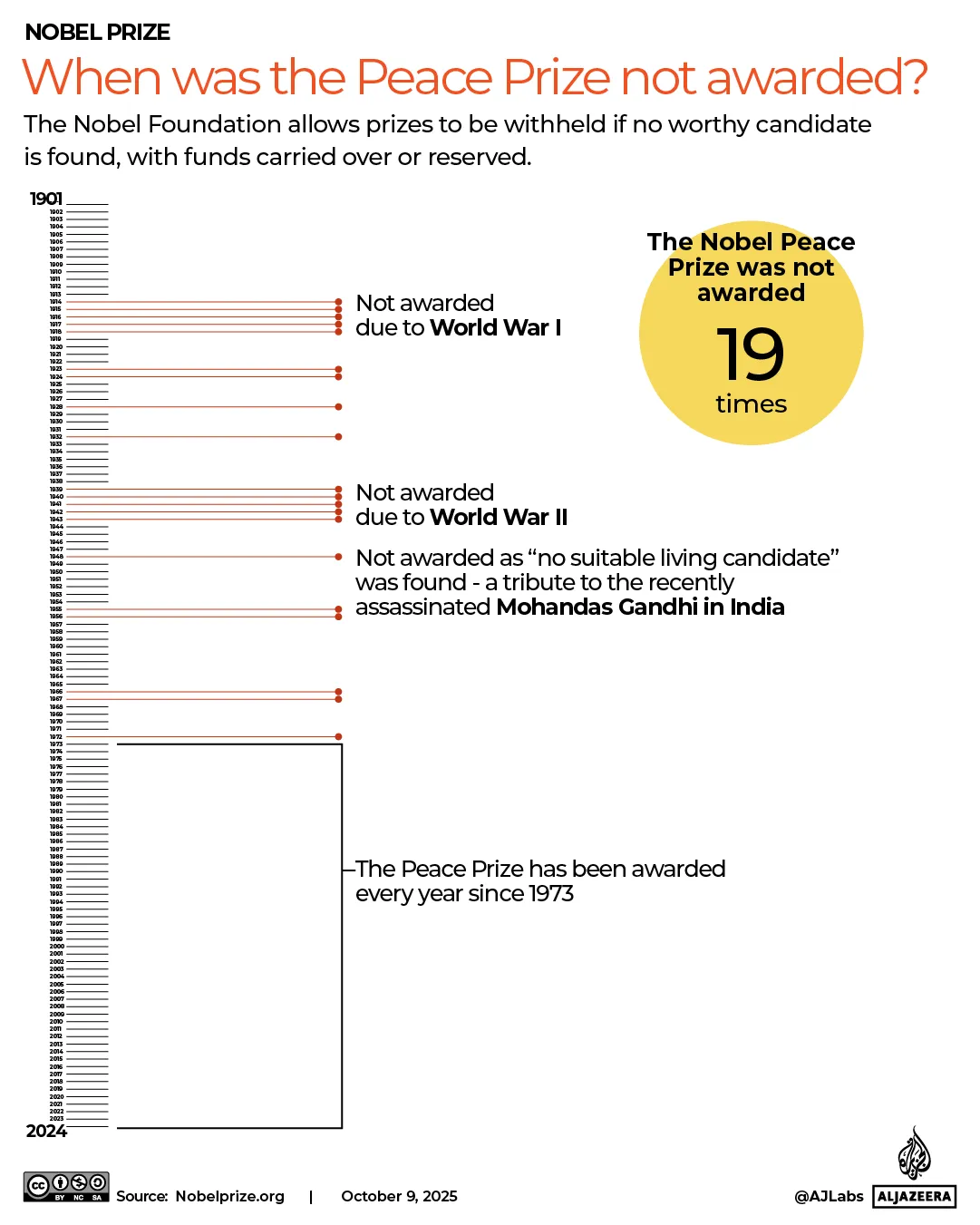
Has anyone refused the award?
The Nobel Peace Prize has only been refused on one occasion.
In 1973, Vietnamese politician Le Duc Tho and US Secretary of State Henry Kissinger were awarded the prize for their efforts to end the Vietnam War.
Tho declined the award, citing the ongoing conflict in Vietnam.
The Vietnam War lasted from the late 1950s to 1975, ending with the fall of Saigon on April 30, 1975, and killed millions of people.
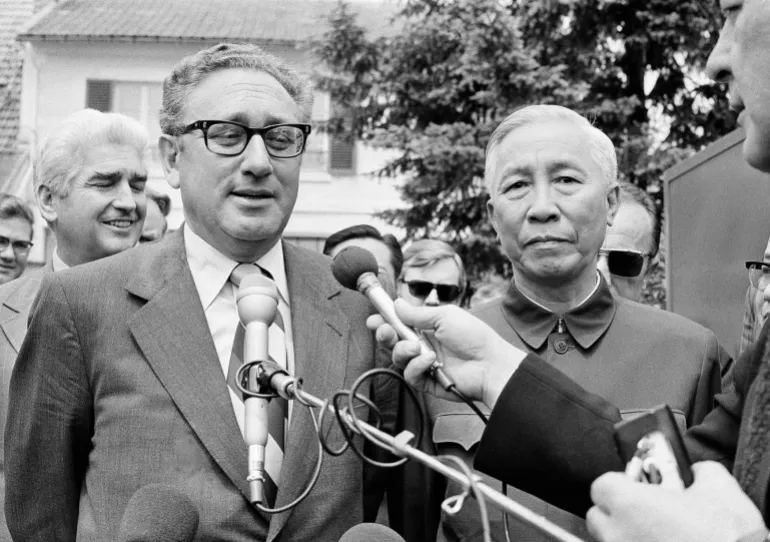
Has the award ever been shared?
Yes, very often. Out of the 105 awards presented so far:
- 71 prizes were given to a single laureate,
- 31 prizes were shared between two laureates, and
- 3 prizes were shared among three laureates.
According to the Nobel Foundation’s statutes, a prize can be divided equally between two recipients or shared among up to three if their work is considered to merit the award jointly. The prize cannot be divided among more than three people.
Who are all the winners of the Nobel Peace Prize?
The table below lists all Nobel Peace Prize laureates from 1901 to 2024, along with their country of origin.